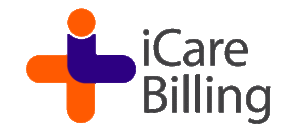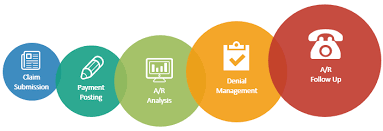Importance of Medical Billing Services in Healthcare Finance
In the complex realm of healthcare financing, medical billing service is crucial to the ecosystem. Healthcare providers must master patient data management, insurance claim processing, and payment posting in this changing environment. Medical billing services are examined in this article to determine their importance and how they improve healthcare management. We explore the vital roles of these services, from cost savings and accuracy to patient experiences.
Discover the benefits of outsourcing, market trends, and tips for choosing a medical billing partner. This investigation helps you understand, adapt, and succeed in healthcare finances, which are constantly changing.
Understanding Medical Billing Services
Medical billing service is the foundation of healthcare administration, including a wide range of duties vital to medical practices’ finances.
Definition And Scope
Medical billing is the process of filing and following up on claims with health insurance companies to get reimbursement for healthcare services given by healthcare providers. Beyond invoicing, it entails careful financial transaction management to ensure revenue flow.
Key tasks and responsibilities
- Patient Data Management:
Efficient medical billing requires proper patient data management. This involves collecting, updating, and preserving demographic, insurance, and medical history data.
- Insurance Claim Processing:
One of the leading roles is to navigate the complexities of insurance claim processing. Claims must be prepared and submitted to insurance companies according to requirements.
- Payment Posting:
Once claims are accepted, the next important step is payment posting. This entails monitoring insurance, government, and patient payments. Maintaining financial records and reconciling accounts requires accurate payment posting.
Advantages of Medical Billing Outsourcing
Healthcare providers now strategically outsource medical billing services for several reasons beyond cost.
- Cost Savings:
Outsourcing offers a cost-effective alternative for medical offices seeking operational efficiency. Healthcare institutions may save on personnel, training, and infrastructure by outsourcing billing. Outsourcing’s scalability lets practices pay for services depending on their requirements, saving money over time.
- Enhanced Accuracy:
Outsourcing improves accuracy in medical billing, which is crucial for precision. Professional billing services have experts in billing codes, compliance rules, and insurance needs. This experience reduces claims filing mistakes, minimizing rejections and revenue loss.
- Focus on Care Healthcare Functions
Outsourcing frees healthcare practitioners from administrative billing tasks, allowing them to concentrate on essential healthcare operations. Medical personnel may focus on patient care with billing in experienced hands, creating a more patient-centric and efficient healthcare environment.
Medical billing service affects the patient experience.
By improving efficiency, accuracy, and communication, billing services shape the patient experience.
Simplified Billing Process
Better patient experience starts with simplified billing. Medical billing outsourcing guarantees healthcare finances operate efficiently. Simplified and straightforward billing methods reduce patient misunderstanding and irritation with complicated bills. A smooth procedure builds trust and pleasure.
Reduced Billing problems
Frustration for healthcare professionals and patients may result from billing problems. Outsourced medical billing services decrease billing codes, claim submissions, and payment posting problems due to their competence. This reduces billing statement inconsistencies, improving financial transparency and reducing dispute resolution.
Improved Communication with Patients
Outsourcing billing services may enhance contact with patients, which is crucial in healthcare. Professional billing services have specialized personnel to answer patient questions, explain billing specifics, and handle insurance issues. This proactive communication addresses difficulties quickly and improves patient-provider interactions.
Medical billing trends and innovations
For efficiency and compliance in the ever-changing healthcare administration environment, medical billing service trends and innovations must be followed. These services are improving in these areas:
Technology Integration: The use of advanced technology is changing medical billing. Automation, AI, and machine learning are speeding up claim processing and reducing human mistakes. Medical billing efficiency is improving as EHR integration becomes smoother. For accessibility, scalability, and real-time collaboration, providers are embracing cloud solutions.
Compliance with Regulatory Changes: Medical billing services adjust to address frequent regulatory changes in the healthcare business. HIPAA and ACA changes must be followed. Healthcare providers might avoid fines by using agile billing systems that can quickly adapt to changing requirements.
Data Security Measures: With the increasing digitalization of healthcare data, data security is a top need. Medical billing providers are taking strong data security and privacy safeguards. To safeguard sensitive data, encryption, secure data storage, and strict access restrictions are used. Services prioritize data protection and cybersecurity to prevent breaches.
Selecting a Medical Biller
Factors To Consider
Healthcare providers’ financial stability and efficiency depend on their medical billing service choice. Key variables to consider while making this vital choice:
- Industry Experience:
Assessing the industry experience of a medical billing business is crucial. A healthcare billing veteran is more likely to handle coding, compliance, and insurance issues. Experience assures you that the provider knows your field’s medical billing peculiarities, decreasing mistakes and claim rejections.
- Reputation:
Reputation is crucial in the healthcare sector. Billing services’ reputations may be gleaned from other healthcare practitioners, customer testimonials, and internet reviews. A respected solution is more likely to execute consistently and reliably, improving your practice’s financial workflow.
- Technology Infrastructure:
The technical backbone of a billing service is vital for its efficiency. Ensure the service uses industry-standard software and systems. A solution that can manage current medical billing should be compatible with EHR systems, employ secure cloud-based platforms, and integrate.
Future of Medical Billing Services
Billing services will evolve due to technological advances, shifting healthcare environments, and the pursuit of efficiency. A peek at the future:
Growing Role in Healthcare: Billing services are likely to become more critical in healthcare ecosystems. These services may help healthcare companies optimize revenue cycles, offer data analytics, and respond to changing regulatory needs beyond financial transactions. Billing services will be integrated into healthcare practices’ operational efficiency and financial health.
Anticipated Technology Advancements: Constant technological advancements will determine the future of medical billing. Automating and streamlining billing procedures using AI and machine learning should reduce mistakes and boost efficiency. Predictive analytics may help detect revenue-impacting concerns. Blockchain technology might also improve medical billing data security, transparency, and integrity.
Potential problems and Solutions: Billing services will face problems as they evolve. Always keeping up with shifting legislation, payer policies, and industry standards takes a lot of work. Artificial intelligence-driven compliance monitoring and real-time updates may alleviate these issues. In the changing environment, balancing technology adoption and personal touch in patient encounters will provide an excellent patient experience.
Conclusion
Finally, medical billing service combines technology innovation, changing healthcare responsibilities, and patient experience improvement. As these services adapt to emerging technology and market issues, they become strategic healthcare optimization partners rather than financial gatekeepers. The future will see medical billing services shape healthcare providers’ financial health, improving efficiency, compliance, and patient care. The future requires negotiating complexity with innovation to integrate technology and human-centric healthcare.








